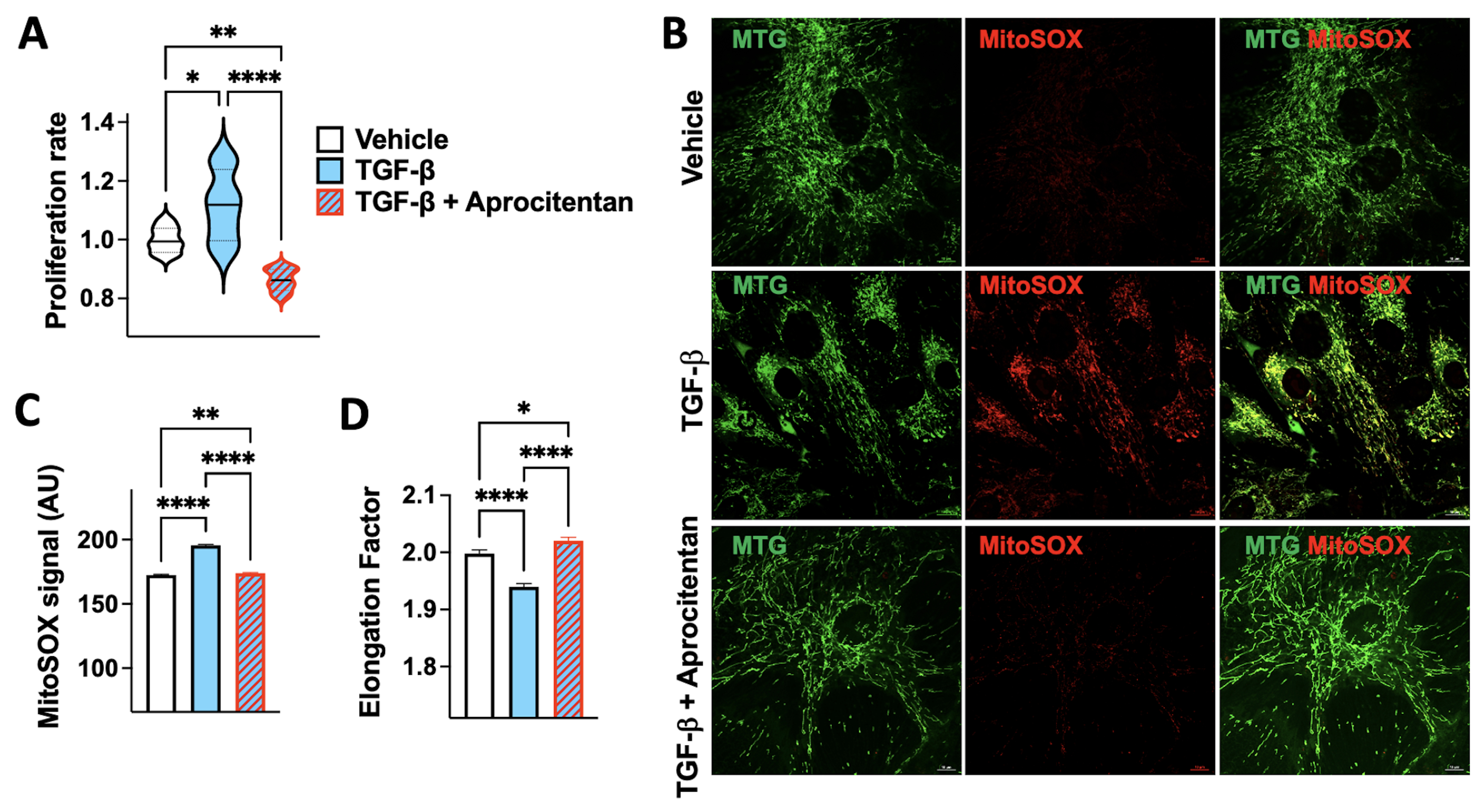Final ID: 35
The Dual Endothelin-1 Antagonist Aprocitentan Attenuates Mitochondrial Oxidative Stress in Human Cardiac Fibroblasts
Abstract Body: Endothelin-1 (ET-1) is a peptide hormone primarily produced by endothelial cells that functions as a potent vasoconstrictor through two receptors, ETA and ETB. While most research on ET-1 has focused on endothelial dysfunction and hypertension, increasing evidence shows that ET-1 is also involved in other physiological processes such as cell proliferation, inflammation, and tissue remodeling. Dysregulation of ET-1 has been implicated in the pathogenesis of various diseases, including heart failure, atherosclerosis, fibrosis, systemic sclerosis, and cancer. Aprocitentan (also known as ACT-132577) is a relatively new dual ET-1 receptor antagonist that prevents ET-1 from binding to both endothelin receptors and has been shown to significantly reduce blood pressure in patients with resistant hypertension. Our hypothesis was that aprocitentan could reduce the proliferation rate and mitochondrial ROS production induced by TGF-β in human cardiac fibroblasts (HCFs). HCFs were isolated from hearts from fully de-identified cadaveric donors and cultured in cardiac fibroblast growth medium. HCFs were treated with aprocitentan (4 μM) and/or TGF-β1 (10 ng/ml) for 72 hours (doses and times identified in preliminary dose-response and time-course assays). Aprocitentan reduced the TGF-β1-induced proliferation rate in HCFs by approximately 23% (Figure 1A). Our study also aimed to determine if aprocitentan could mitigate mitochondrial dysfunction. Since the mitochondrion is a major source of reactive oxygen species (ROS), which can promote myofibroblast differentiation, mitochondrial properties in HCFs were assessed using MitoTracker Green and MitoSOX staining. TGF-β1 treatment increased mitochondrial ROS production, which was significantly reduced by aprocitentan (Figure 1BC); furthermore, aprocitentan reduced mitochondrial fragmentation induced by TGF-β1 treatment (Figure 1D). To the best of our knowledge, we are the first to demonstrate that aprocitentan can reduce the increased production of mitochondrial ROS, mitochondrial fragmentation, and cell proliferation rate induced by TGF-β1 in HCFs. This discovery could pave the way for new research and therapeutic strategies for treating fibrosis in cardiovascular disorders.
More abstracts on this topic:
Acetylation of Mitochondrial Cyclophilin D Increases vascular Oxidative Stress, Induces Glycolitic Switch, Promotes Endothelial Dysfunction and Hypertension
Dikalov Sergey, Sack Michael, Dikalova Anna, Fehrenbach Daniel, Mayorov Vladimir, Panov Alexander, Ao Mingfang, Lantier Louise, Amarnath Venkataraman, Lopez Marcos, Billings Frederic
Acetylation of Mitochondrial Cyclophilin D Increases vascular Oxidative Stress, Induces Glycolitic Switch, Promotes Endothelial Dysfunction and HypertensionDikalov Sergey, Sack Michael, Dikalova Anna, Fehrenbach Daniel, Mayorov Vladimir, Panov Alexander, Ao Mingfang, Lantier Louise, Amarnath Venkataraman, Lopez Marcos, Billings Frederic

